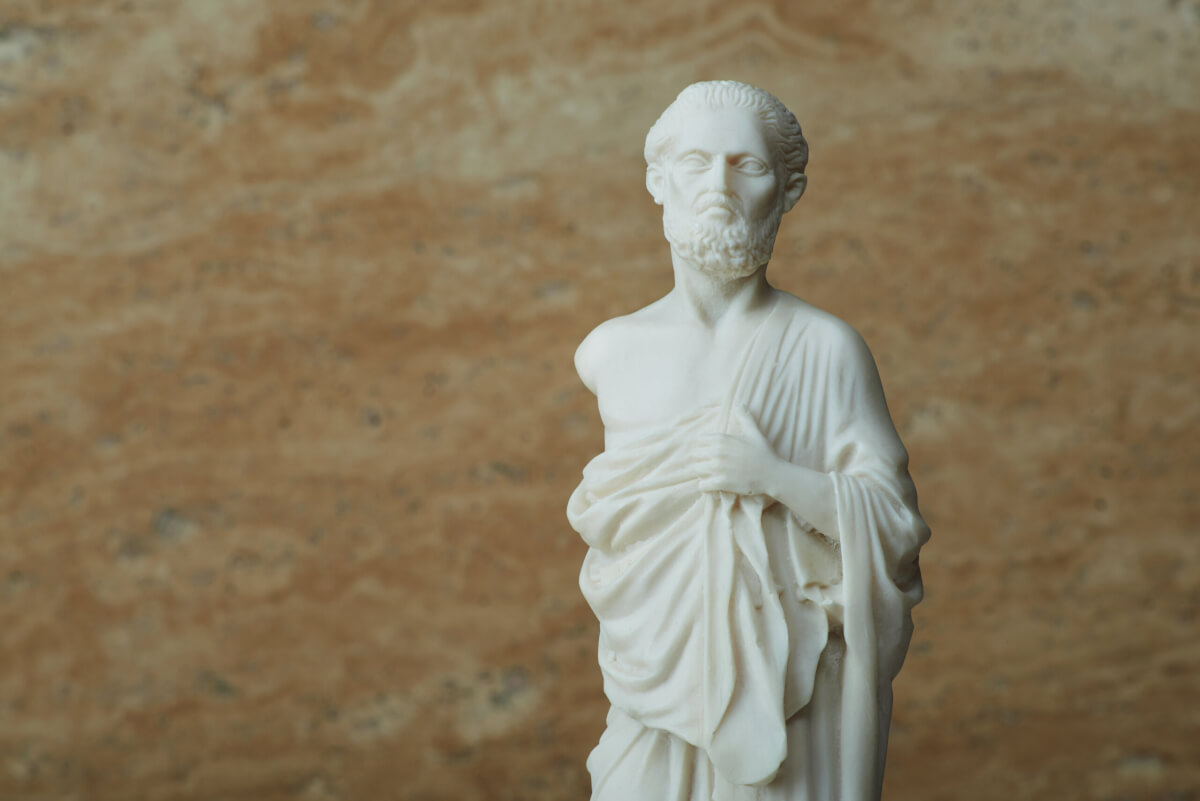LOS ANGELES — Damocles may have had a sword hanging over his head, but did he have dementia to worry about as well? The evidence suggests that the answer is no, according to fascinating new research assessing medical records from 2,500 years ago. Ancient Greece was the birthplace of medicine, so what better place to start tracing back the earliest mentions of memory loss across human history? Surprisingly, scientists at the University of Southern California say their latest analysis of classical Greek and Roman medical texts reveals that dementia was incredibly rare thousands of years ago.
Considering just how prevalent cognitive decline, severe memory loss, and dementia have become in modern society, study authors say today’s widespread dementia rates stem from modern environments and lifestyles. More specifically, they add sedentary behavior and exposure to air pollution are likely major culprits.
“The ancient Greeks had very, very few — but we found them — mentions of something that would be like mild cognitive impairment,” says first author Caleb Finch, a University Professor at the USC Leonard Davis School of Gerontology, in a media release. “When we got to the Romans, and we uncovered at least four statements that suggest rare cases of advanced dementia — we can’t tell if it’s Alzheimer’s. So, there was a progression going from the ancient Greeks to the Romans.”
Even all those years ago, the remarkable ancient Greeks recognized that with aging often comes memory issues, which we recognize today as mild cognitive impairment (MCI). However, there are no historical records pointing to knowledge of major loss of memory, speech, and reasoning due to Alzheimer’s or other types of dementia.
Prof. Finch and co-author Stanley Burstein, a historian at California State University, Los Angeles, analyzed a lengthy body of ancient medical writing put together by Hippocrates, considered the father of medicine, and his followers. That text lists and describes numerous ailments known to develop in the elderly, such as deafness, dizziness, and digestive disorders. Memory loss, however, was entirely absent.

Centuries later, in ancient Rome, a few mentions of memory loss began to appear. Roman and Greek physician Galen once said that at the age of 80, certain people begin to have trouble learning new things. Meanwhile, Pliny the Elder, a Roman author, once recorded that the senator and famous orator Valerius Messalla Corvinus forgot his own name. Even the great Cicero prudently remarked that “elderly silliness … is characteristic of irresponsible old men, but not of all old men.”
Researchers speculate that as Roman cities grew denser and pollution increased, it led to an uptick in cases of cognitive decline. Moreover, Roman aristocrats usually made use of lead cooking vessels, lead water pipes, and even added lead acetate into their wine to sweeten it. Today, we know that lead is a poisonous neurotoxin. Notably, even back then, a few ancient writers recognized the toxicity of lead-containing materials. Some scholars even posit lead poisoning is somewhat to blame for the fall of the Roman Empire.
While conducting this latest research, the study authors didn’t limit their scope to just the Romans and Greeks. There is no demographic data available for ancient Greece and Rome, so researchers instead turned to modern-day Tsimane Amerindians, an Indigenous people of the Bolivian Amazon.
Similar to the ancient Greeks and Romans, the Tsimane lead a preindustrial lifestyle that is very physically active. They also have extremely low rates of dementia. An international collection of cognitive scientists led by Margaret Gatz, a professor of psychology, gerontology, and preventive medicine at the USC Leonard Davis School, recently found that only about one percent of older Tsimane people live with dementia. Conversely, in the United States, 11 percent of older adults (65+) have dementia.
“The Tsimane data, which is quite deep, is very valuable,” Prof. Finch concludes. “This is the best-documented large population of older people that have minimal dementia, all of which indicates that the environment is a huge determinant on dementia risk. They give us a template for asking these questions.”
The study is published in the Journal of Alzheimer’s Disease.

The average life expectancy in ancient Rome was 25 years. Average in the middle ages was 33 years and 55 years by the early 1900s. Perhaps, that it the reason.